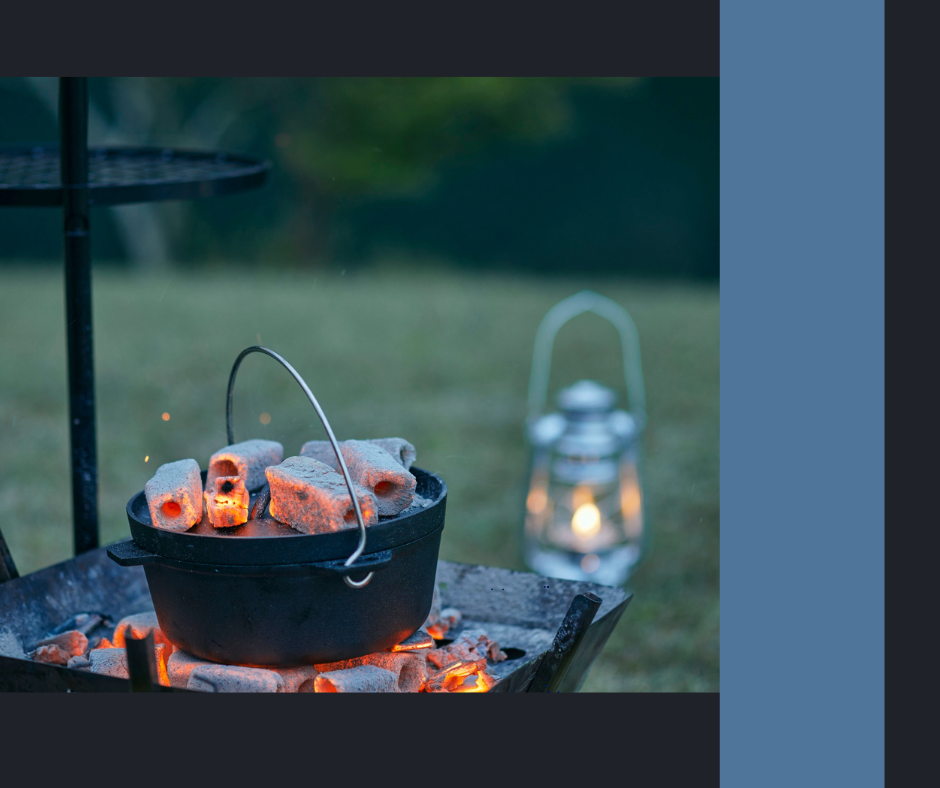
The Top 10 Survival Skills Everyone Should Know
Share
Disasters can strike without warning, and being prepared with essential survival skills can mean the difference between life and death. Whether you're facing a natural disaster, a power outage, or a wilderness emergency, these 10 survival skills are crucial for everyone to know. Don't let this list overwhelm you. Set a goal to learn one new skill every month. Some of these are as easy as watching a YouTube video, others require practice, but if you break it into manageable pieces over an extended period of time it will help you to not feel so overwhelm. You got this!
1. Finding and Purifying Water
Water is the most critical survival resource—humans can only survive about three days without it. Learn how to:
- Identify natural water sources like streams, rainwater, and underground seepages.
- Purify water using methods such as boiling, filtering, or chemical treatment (e.g., iodine tablets or bleach).
- Create a solar still or collect dew in arid environments.
2. Building a Fire
Fire provides warmth, purifies water, cooks food, and keeps predators away. You should practice:
- Using multiple fire-starting methods, including matches, lighters, fire strikers, and friction techniques like a bow drill.
- Gathering dry tinder, kindling, and fuel wood.
- Knowing how to build different types of fires (teepee, log cabin, or lean-to) based on conditions.
3. Finding or Creating Shelter
Exposure to extreme heat or cold can be deadly. In extreme conditions a person may only survive for 3 hours without shelter. Basic shelter skills include:
- Identifying natural shelters like caves, fallen trees, or rock overhangs.
- Building a debris hut, lean-to, or tarp shelter for protection.
- Using insulation techniques to retain body heat in cold weather.
4. Basic First Aid
Medical emergencies can escalate quickly, so knowing first aid is crucial. Key skills include:
- Stopping bleeding with direct pressure and dressings.
- Treating burns, fractures, and wounds.
- Performing CPR and treating shock.
- Recognizing and treating dehydration, hypothermia, and heat exhaustion.
5. Navigation Without a GPS
If you're lost, knowing how to navigate can help you find safety. Learn to:
- Read a map and use a compass.
- Navigate using natural signs (e.g., the sun, stars, and moss growth).
- Create trail markers to avoid walking in circles.
6. Food Procurement
If you’re stranded for an extended period, knowing how to find food is essential. Basic skills include:
- Identifying edible plants and avoiding poisonous ones.
- Trapping, fishing, and hunting small game.
- Building simple snares or fish traps.
- Learning how to safely prepare and cook food.
7. Tying Knots
Strong, secure knots are useful for shelter-building, first aid, and securing gear. Some essential knots to learn are:
- Bowline (for making secure loops).
- Square knot (for tying two ropes together).
- Clove hitch (for securing a rope to a post).
- Taut-line hitch (for adjustable tension).
8. Signaling for Rescue
If you’re lost or injured, knowing how to signal for help increases your chances of survival. Techniques include:
- Creating large, visible distress signals (e.g., SOS with rocks or logs).
- Using a mirror or reflective surface to catch sunlight.
- Blowing a whistle in sets of three (universal distress signal).
- Creating smoke signals with a fire.
9. Self-Defense and Situational Awareness
Survival isn't just about the elements—sometimes, people or animals pose a threat. Important self-defense skills include:
- Recognizing and avoiding dangerous situations.
- Learning basic hand-to-hand combat or defensive tactics.
- Carrying and knowing how to use personal defense tools (e.g., pepper spray, a knife, or a firearm). Do not carry a personal defense tool (even pepper spray) without learning how to use it and practicing regularly. If you don't the tool can and most likely will be used against you.
10. Maintaining a Survival Mindset
Your mental state plays a massive role in survival. To stay focused and increase your chances of making it through a crisis:
- Stay calm and assess the situation before acting.
- Keep a positive, problem-solving mindset.
- Practice survival skills regularly to build confidence.
Final Thoughts
Survival isn't just about having the right gear—it's about knowing how to use your skills effectively. By mastering these 10 essential survival skills, you’ll be better prepared for any emergency, whether in the wilderness or during a disaster at home.
No fuss. No fluff. No fear.
To learn how to teach your kids basic survival skills check out this article here.
To help you decide whether you should bug-out or shelter-in-place, check out this article here.
Other Articles of Interest:
How to Create an Emergency Plan
How to Plan an Evacuation Route
Urban Survival Tips: What to do When Disaster Strikes Your City
